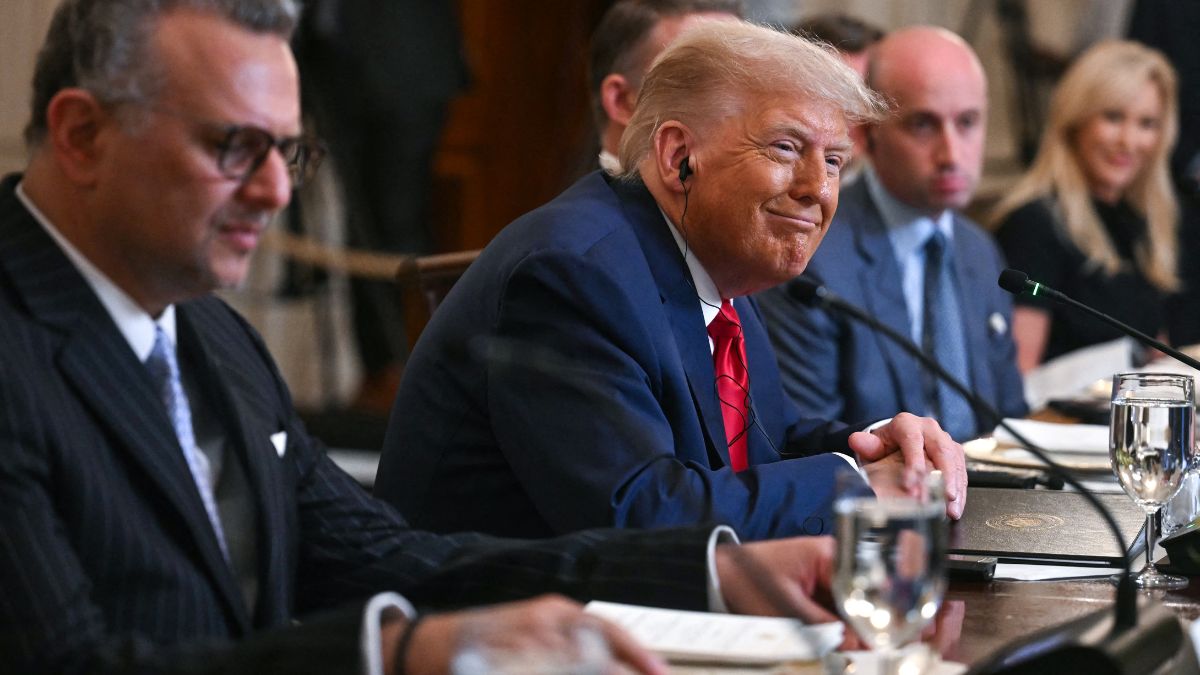In what is being called a strategic move by the US, President Donald Trump welcomed five West African leaders to the White House on Wednesday, aiming to strengthen trade ties and gain access to the region’s untapped trove of critical minerals.
The summit, which included the presidents of Senegal, Liberia, Guinea-Bissau, Mauritania and Gabon, reflects Washington’s growing urgency to offer economic partnerships in Africa as a counterweight to China and Russia’s deepening influence on the continent.
Trump’s administration is working to deepen economic links with these resource-rich nations even as it scales back foreign aid across the continent and enforces a 10 percent import tariff. The strategy reflects a growing push by Washington to counter the growing influence of China and Russia in Africa’s economic and geopolitical arena.
The shift has been shaped in part by Massad Boulos, Trump’s senior advisor on African affairs and father-in-law to one of the president’s daughters. Boulos played a key role in negotiating a recent peace deal between Rwanda and the Democratic Republic of the Congo — a move seen as opening the door to US investment in Congo’s valuable minerals sector.
While the West African nations represented at the summit are relatively small in economic output, they are rich in essential natural resources such as manganese, bauxite, and copper. These reserves offer a new avenue for American businesses to engage in mining and infrastructure development in territories where China has yet to fully dominate.
“We’re working tirelessly to forge new economic opportunities involving both the United States and many African nations,” Trump told the assembled leaders and reporters ahead of the meeting.
Impact Shorts
More Shorts“There’s great economic potential in Africa, like few other places, in many ways."
He gushed about the continent’s “vibrant places, very valuable lands, great minerals, great oil deposits” – and was rewarded with personal praise in return as each leader offered their approval when asked by an African media outlet if Trump should win a Nobel Peace Prize.
The talks – held over a lunch in the State Dining Room – came with Washington seeking to ensure a stable supply of critical minerals.
All five of the countries invited enjoy rich natural resources, including manganese – a key mineral in the production of stainless steel and batteries – iron ore, gold, diamonds, lithium and cobalt.
But overshadowing the talks will be radical steps by Trump and his officials to recalibrate US relations with African nations.
Earlier this month, the administration shuttered the US Agency for International Development (USAID), and said it was moving away from a “charity based-model” to focus instead on trade-based partnerships.
West Africa is expected to be among the regions hardest hit by the aid cuts, which are likely to lead to more than 14 million additional deaths globally by 2030, according to a study published in the Lancet medical journal.
Drug trafficking and immigration
US financial help played a crucial role in rebuilding Liberia after its civil wars, and it was still receiving an annual $160 million – about three percent of its GDP – as recently as last year.
“Liberia is a long time friend of the United States, and we believe in your policy of making America great again,” President Joseph Boakai told Trump.
“And we also go a long way with you and your in your diplomacy that has to do with economic development and commercial friendship."
US arch-rival China has made substantial investments in several of the nations attending, with Gabon providing 22 percent of the manganese it uses in batteries.
Russia has meanwhile supported the nascent Alliance of Sahel States, which shares borders with several of the countries at Wednesday’s lunch.
Security is expected to loom large at the meeting, with international drug trafficking and immigration top concerns for Washington.
West Africa’s Sahel countries have been dogged by attacks from terrorist groups, while a series of coups have deepened political instability.
Entries from the region make up a significant portion of the Black immigrant population in the United States, which rose by almost a quarter between 2012 and 2022, reaching 4.3 million individuals.
Guinea-Bissau – a transit zone for cocaine shipments from Latin America to Europe and beyond – has struggled to contain drug trafficking.
“Guinea-Bissau is a peaceful country, and we are a small country. But we are a great state – not a great state like the United States, but we’re a great country as well,” said the country’s President Umaro Sissoco Embalo.
A potential US travel ban impacting Gabon, Liberia, Mauritania, and Senegal was reported in June, as part of a larger list of 36 countries facing scrutiny by the Trump administration.
With inputs from agencies


)

)
)
)
)
)
)
)
)



